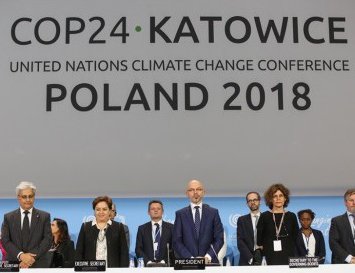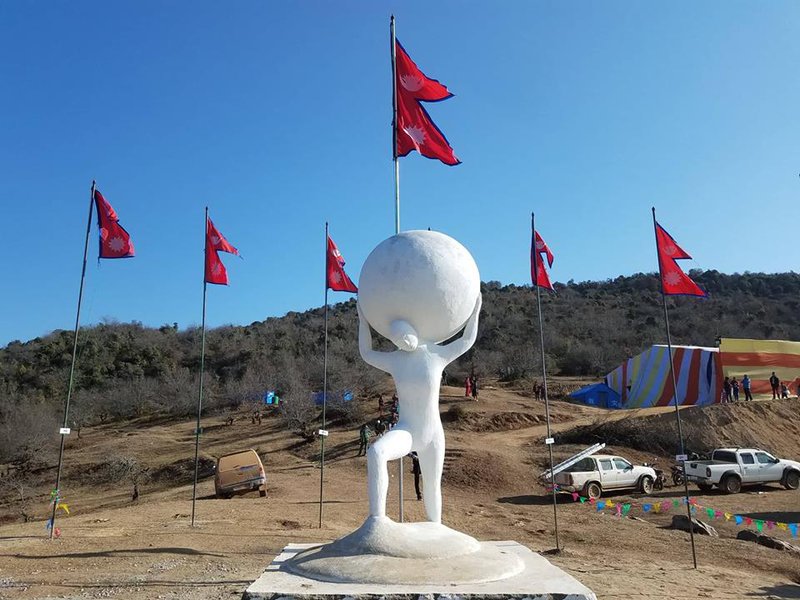
The Conference of the Parties (CoPs) to the UN Framework Convention on Climate Change, Kyoto Protocol and the Paris Agreement, held from 2 to 15 December 2018 in Katowice, Poland made several decisions to expedite the implementation of these legally-binding instruments. Party delegates negotiated on several agenda items of these instruments in meetings of the Subsidiary Bodies and Ad Hoc Working Group. The Katowice Climate Change Conference (KCCC) was attended by over 22,000 participants, including nearly 14,000 government delegates.
The KCCC agreed on the implementation guideline to the Paris Agreement and the guideline contains further guidance on mitigation (GHGs emissions reduction) with much focus on nationally determined contributions (NDCs), adaptation with focus on adaptation communication, finance, technology, capacity building, transparency framework for action and support, global stocktake, and effective operation of the Committee to facilitate the implementation and compliance of the Paris Agreement.
Parties recognised the role of the IPCC in preparing the Special Report on the impact of global warming of 1.50C, appreciated its scientific community for responding to the request of the CoP, welcomed the timely completion of the report, invited Parties to make use of the information and requested the SBSTA to consider the report to strengthen scientific knowledge on 1.50C goal but, in fact, did not decide to reduce GHGs emissions based on the IPPC Special Report.
Key attractions of the 24th session of the CoP to the UNFCCC were on outcomes of the Paris Agreement Work Programme, High-level Ministerial Dialogue on Finance, urgency of the need for entry into force of the Doha Amendment to the Kyoto Protocol for the implementation of pre-2020 ambition for GHGs emissions reduction, and Talanoa Dialogue for enhanced ambition. Statements of Head of States and Governments also provided guidance for the KCCC outcomes.
Nepal attended this Conference at the level of Head of the State. The President, Mrs. Bidhya Devi Bhandari delivered a statement on 3 December 2018 at the high-level Segment and informed, as usual, the impacts of climate change in Terai to snow-capped mountains, country planning to review the policy and NDC with a long-term strategy for their implementation, and activities like President Chure Conservation Programme, national and local adaptation and mitigation plans of action. She expressed her confidence for support and cooperation of the international community in mobilising knowledge, skills, technologies and climate finance to, inter alia, promote research, support mountain economy and ensure access to clean energy. This statement guided the Nepalese delegation to participate in negotiation. The delegates might have also considered the priority issues as identified during pre-CoP consultations and country strategy to build climate resilience, shift towards low carbon economy, and strengthen climate diplomacy, including Addis-Ababa LDC Ministerial Communiqué on climate change adopted in October 2018. Nepal organised side-events to share national initiatives on climate change activities and also shared national concerns on GWP-organised event.

After CoP24, two climate change events have been organised within the last 3 weeks. The National Climate Conference, organised on 31 December 2018 and 1 January 2019 at about 2500m altitude in Melamchi Municipality-9, Gufadanda of Sindhupalchowk district, was inaugurated by the President of Nepal. This conference was organised by Association of District Coordination Committees (DDC) and was attended by chiefs of 75 DDCs and invited experts. Participants and experts showed concerns on temperature rise, conversion of 'white mountains into black' and shared previous stories about climate change impacts such as snow melting, drying-up of water sources, drought and decline in agriculture production.
The Conference issued 10-points Sindhupalchowk declaration with the aim of institutionalising climate change-friendly policies and plans and promoting climate change adaptation and mitigation strategies at the national, provincial and local levels. On climate change, Participants made commitment to, inter alia, raise awareness and promote scientific research, set-up climate centres in municipalities and rural municipalities, develop and promote the use of innovative climate change and environmental adaptation technologies and build human capacity. They also agreed to prepare and implement local adaptation strategies, establish climate fund, and promote climate-friendly development initiatives. It is expected that the DDC Association will encourage the local governments for their implementation unlike that of Kathmandu Declaration (2012) and Rara Declaration on Climate Change (2014).
On 4 January 2019, CEN and CARE organised a few-hours programme on Climate Action in Nepal in the context of UNFCCC CoP24 Outcomes and the Paris Agreement. Speaker urged to take actions related to, inter alia, reviewing the NDC and preparing its implementation plan, campaigning for using electricity for cooking and mobility, moving from plans to programmes on adaptation to reduce vulnerability, engaging local governments in preparing and implementing climate resilient low carbon strategies, and strengthening the climate diplomacy before CoP25.
Panellists raised issues, concerns and ideas and shared perceptions related to the lack of policy implementation, non-continuation of good practices, non-translation of commitments into actions, 'dying syndrome of civil society' such as in the case of Nijgadh airport, repetition of same stories on climate change, LDC's flexibility on NDCs, capitalising Nepal's front runner initiatives such as on LAPA and budget code, engagement of civil society organisations and so on. The government representative informed about inadequate action on GHGs reduction and it indicates shift in priorities for protecting climate vulnerable communities through adaptation and climate-resilient programmes.
The Department of Environment has engaged academic institution to study the environmental status of all 7 provinces. This good initiative, however, might need to have a guidance to generate and analyse data and information in such a way that it provides clear message on key drivers, pressure, state, impact, and responses to improve environmental quality and reduce climate vulnerability.

Batu Uprety
Former Joint-Secretary and Chief of Climate Change Management Division, Ministry of Environment (then), and former Team Leader, National Adaptation Plan (NAP) formulation process. E-mail: upretybk@gmail.com
- Approval Of EIA-Related First And Last Reports At Once
- Jun 14, 2025
- Two Calls For Climate Action From Kathmandu
- May 21, 2025
- Teaming up Climate Change Negotiation
- Apr 18, 2025
- Sagarmatha Sambad: Likely Bearing the Fruits
- Mar 27, 2025
- Decadal Experience In Preparing The NDC
- Mar 03, 2025












